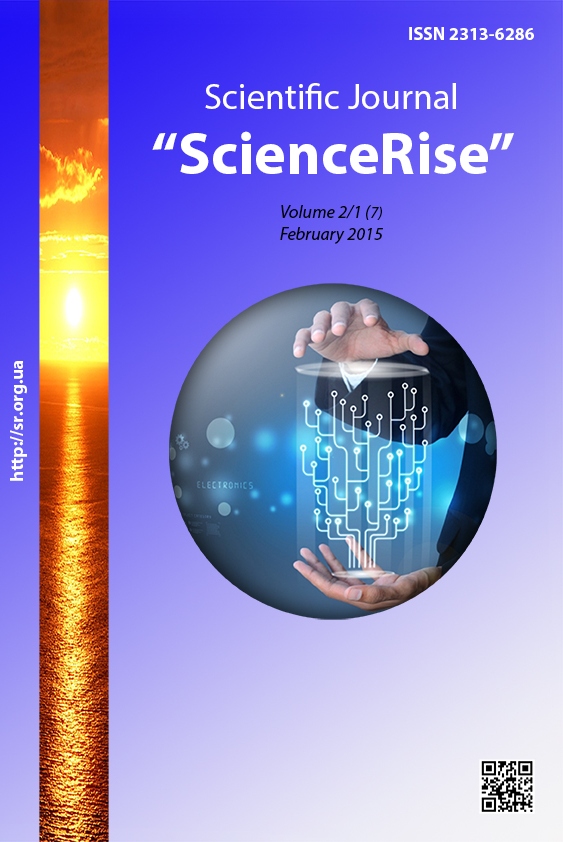Self-guided work of students as pedagogical problem
DOI:
https://doi.org/10.15587/2313-8416.2015.37480Keywords:
self-independent work, self-independent activity, autonomy, essence, aspect, foreign students, pre-university stageAbstract
The purpose of this article – to describe self-independent work of students as a pedagogical problem, namely: to define a place of independent work in system of didactic concepts, to explain essence of self-independent work of students in pedagogics, psychology and a methodology of teaching the foreign languages, including Russian as foreign, to analyze aspects of self-independent work
References
Bogoyavlenskaya, А. Ye. (2002). Pedagogicheskoye rukovodstvo samostoyatelnoi rabotoi i razvitiyem poznavatelnoi samostoyatelnosti studentov [Pedagogical guidance by independent work and development of cognitive independence of students]. Tver, Russia: Tver. gos. un-t, 106.
Graf, V., Ilyasov, I., lyaudis, I. I. (1981). Osnovi samoorganizatsii uchebnoi deyatelnosti i samostoyatelnaya rabota studentov [Bases of self-organization of educational activity and independent work of students]. Мoscow, USSR: Izd-vo Mosc. Un-ta, 80.
Jukov, А. Ye., Simonenko, A. V. (2004). Organizatsiya samostoyatelnoi raboti studentov v visshei shkole. Didacticheskiye sredstva, tehnologii, programmi: monografiya [The organization of independent work of students at the higher school. Didactic means, technologies, programs]. Мoscow, Russia: YuNITI-DANA, 220.
Zimnyaya, I. А. (2007) Pedagogicheskaya psihologiya: uchebnik dlya vuzov [Pedagogical psychology]. Мoscow, Russia: Universiteyskaya kniga, Logos, 384.
Zmiyevskaya, N. P., Mirishnikova, O. G. (2008). Kontrol i samokontrol v sisteme uprajnenii po obucheniyu nauchnomu stilyu rechi inostrannih studentov na nachalnom etape [Control and self-control in the system of exercises on teaching to scientific style of the speech of foreign students at the initial stage]. Language, 13, 144–146.
Ilyin, Ye. P. (2000). Motivatsiya i motive [Motivation and motives]. Spb: Piter, 512.
Ivashchik, Ye. А. (1989). Samostoyatelnaya vneurochnaya uchebnaya rabota uchashchihsya kak sredstvo sovershenstvovaniya uchebno-vospitatelnogo protsessa po inostrannomu yaziku v srednei shkole (nem. yaz. 7 kl.) [Independent after-hour study of pupils as means of improvement of teaching and educational process on a foreign language at high school (German a language of 7 cl.)]. The Moscow State Pedagogical Lenin’s Institute, 16.
Kapayeva, А. Ye. (2001). O formirovanii gotovnosti uchashchihsya k samoobucheniyu inostrannim yazikam [About formation of readiness of pupils for self-training to foreign languages]. Foreign languages at school, 3, 12–17.
Kodjaspirova, G. М. (2007). Pedagogika v shemah, tablitsah i opornih konspektah [Pedagogics in schemes, tables and basic abstracts]. Мoscow, Russia: Airis-press, 256.
Listengarten, V. S., Godnik, S. M. (1996). Samostoyatelnaya deyatelnost studentov: posobiye dlya prepodavatelei vuzov [Independent activity of students]. Voronej, Russia: Izd-vo Voronej. un-ta, 96.
Milrud, R. P. (1987). Samostoyatelnaya rabota kak sredstvo povisheniya obuchayemosti shkolnikov [Independent work as means of increase of learning ability of school students]. Questions of an intensification of training to foreign languages at school. Independent work of school students on a foreign language, 4, 6–19.
Minyar-Beloruchev, R. К. (1996). Metodicheskii slovnik: Tolkovii slovar terminov metodiki obucheniya yaziku [Methodical dictionary: Explanatory dictionary of terms of methodology of the language teaching]. Мoscow, Russia: Stella, 143.
Solovova, Ye. N. (2004). Avtonomiya uchashchihsya kak osnova razvitiya sovremennogo neprerivnogo obrazovaniya lichnosti [Autonomy of pupils as basis of development of modern continuous education of the personality]. Foreign languages at school, 3, 41–44.
Dickinson, L. (1987). Self-instruction in Language Learning. Cambridge: Cambridge University Press, 200.
Holec, H. (1998). L’apprentissage auto-dirigé: une autre offre de formation. Le français dans le monde. Recherches et applications. Apprentissage et usage des langues dans le cadre européen. Juillet, 213–256.
Downloads
Published
Issue
Section
License
Copyright (c) 2015 Елена Анатольевна Рощупкина

This work is licensed under a Creative Commons Attribution 4.0 International License.
Our journal abides by the Creative Commons CC BY copyright rights and permissions for open access journals.
Authors, who are published in this journal, agree to the following conditions:
1. The authors reserve the right to authorship of the work and pass the first publication right of this work to the journal under the terms of a Creative Commons CC BY, which allows others to freely distribute the published research with the obligatory reference to the authors of the original work and the first publication of the work in this journal.
2. The authors have the right to conclude separate supplement agreements that relate to non-exclusive work distribution in the form in which it has been published by the journal (for example, to upload the work to the online storage of the journal or publish it as part of a monograph), provided that the reference to the first publication of the work in this journal is included.

